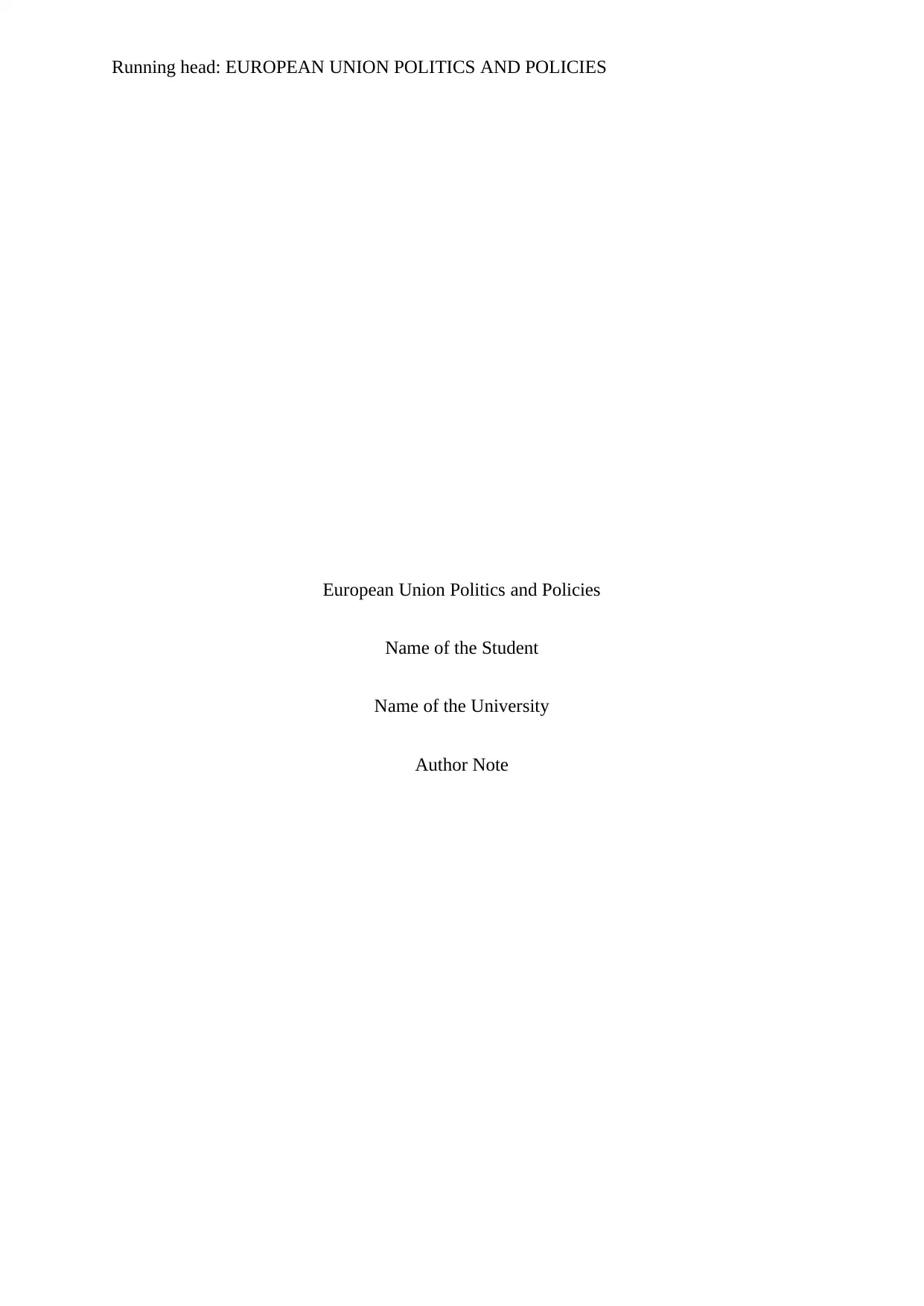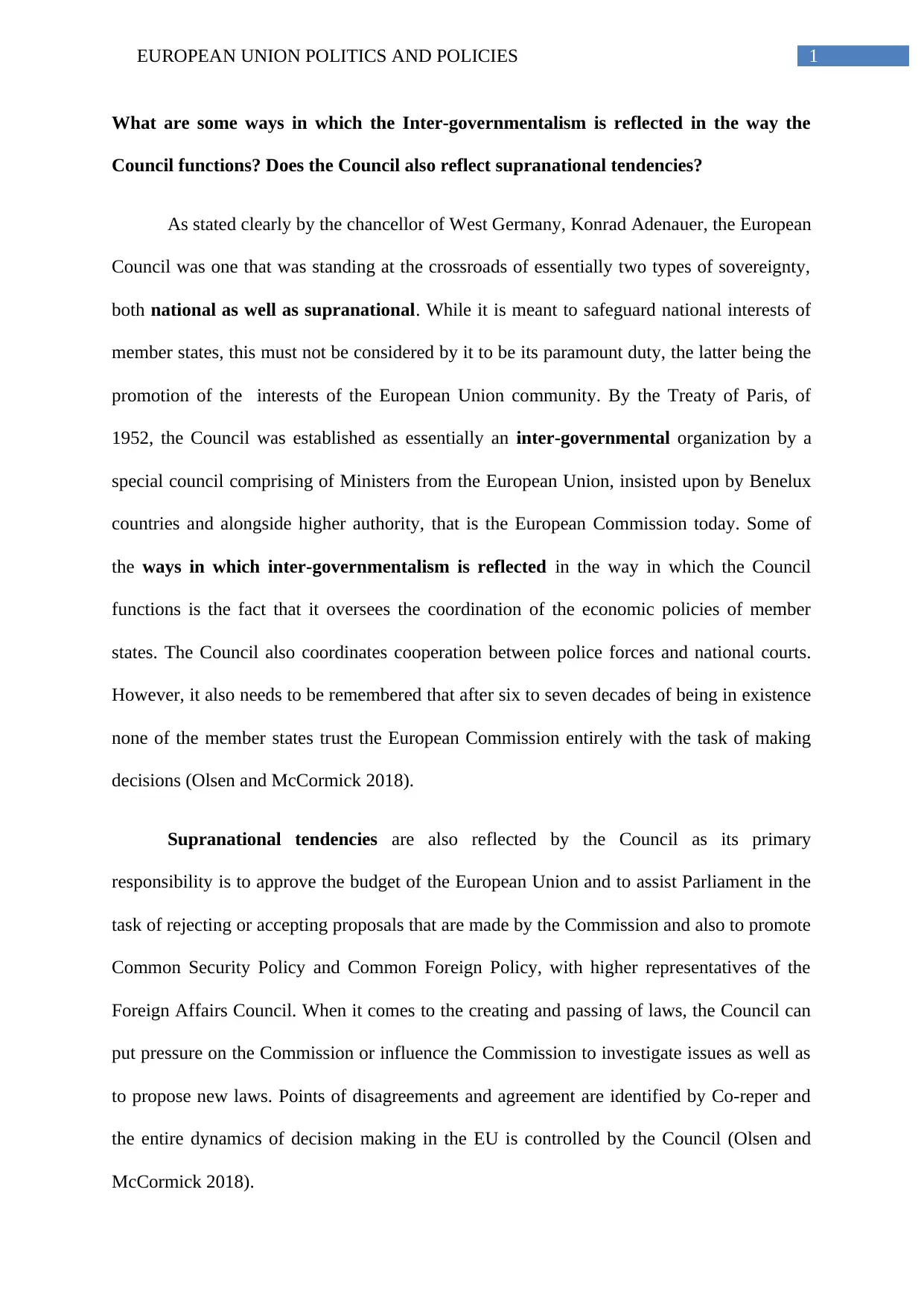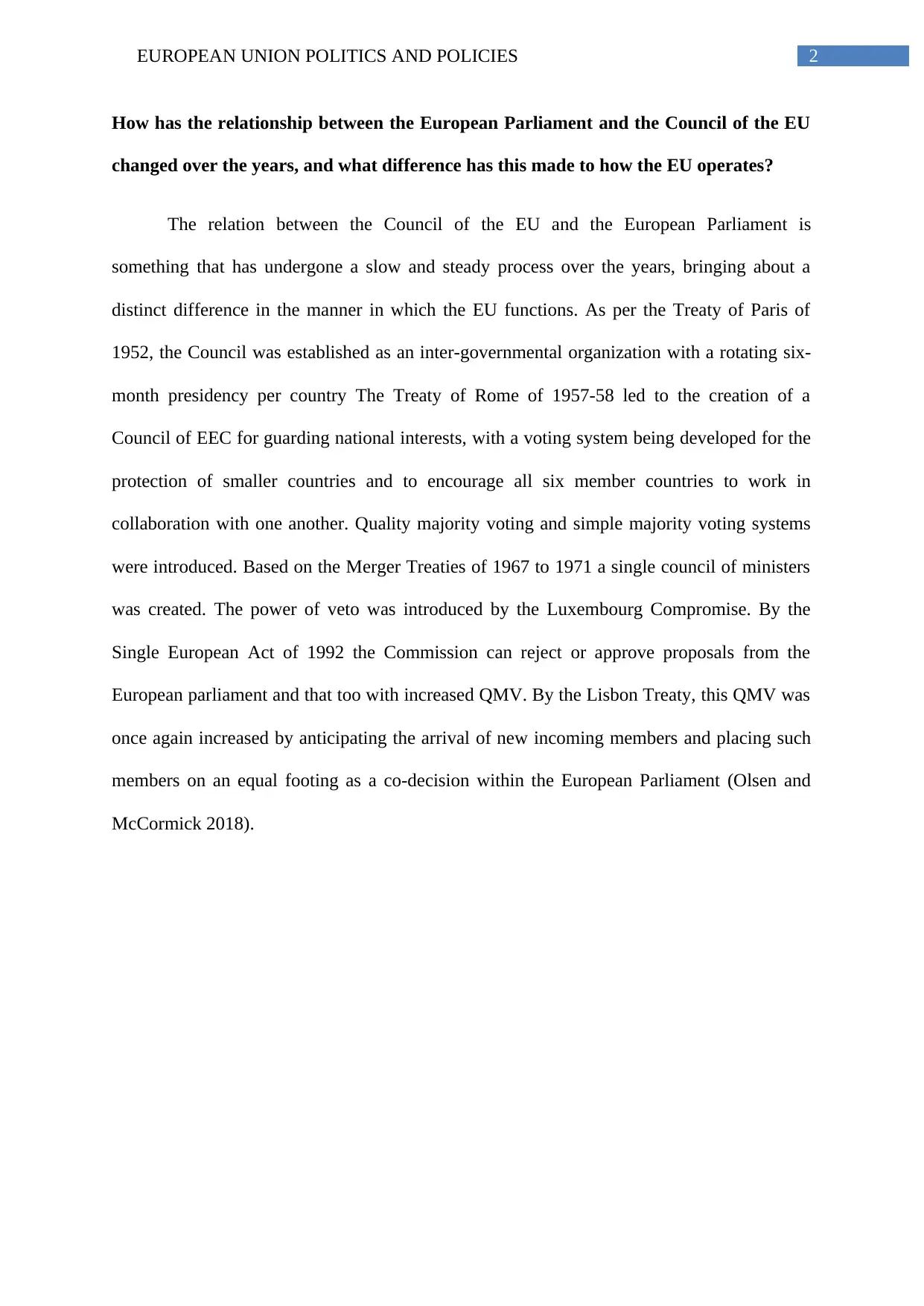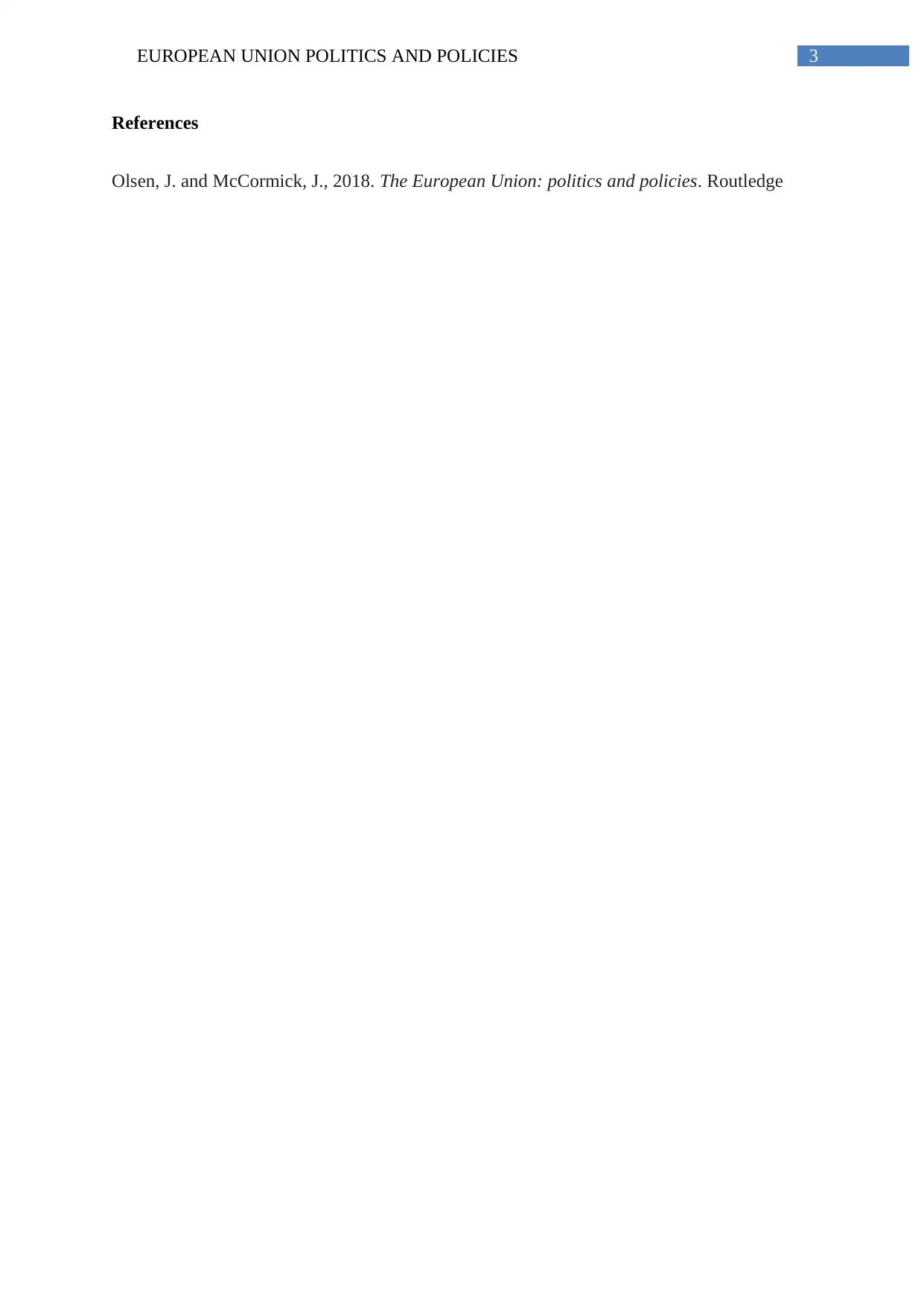EU Council's Inter-governmentalism, Supranationalism & Parliament Role
VerifiedAdded on 2023/04/22
|4
|668
|137
Discussion Board Post
AI Summary
This discussion board post examines the functions of the Council of the European Union, particularly focusing on how inter-governmentalism is reflected in its operations and whether it exhibits supranational tendencies. It references Konrad Adenauer's view of the Council balancing national and supranational sovereignty. The analysis highlights the Council's role in coordinating economic policies and cooperation between police forces and national courts, while also acknowledging the member states' hesitations in fully trusting the European Commission. Furthermore, the discussion explores the evolving relationship between the European Parliament and the Council of the EU over the years, detailing key treaties and acts that have shaped their interactions, such as the Treaty of Paris, the Treaty of Rome, the Merger Treaties, the Single European Act, and the Lisbon Treaty, noting how these changes have significantly impacted the way the EU operates.
1 out of 4









![[object Object]](/_next/static/media/star-bottom.7253800d.svg)